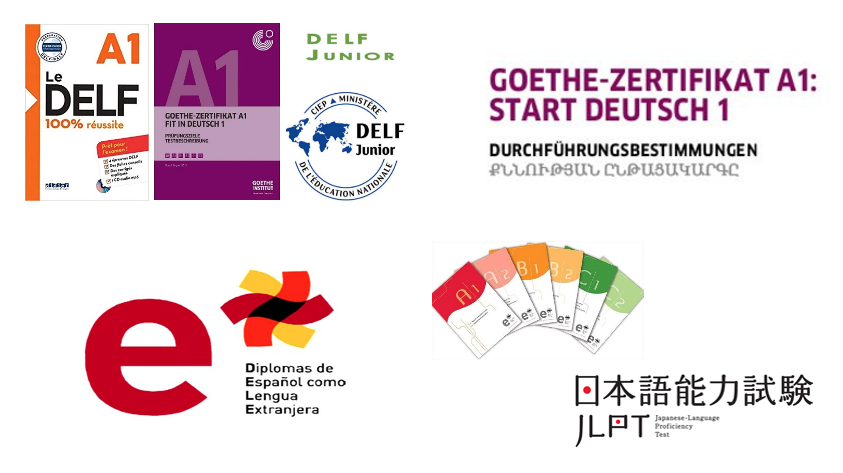Third Languages
Curriculum Objectives
- To use a third language to communicate and interact effectively in a variety of social settings;
- To learn about the culture of that language;
- To appreciate and acknowledge the interconnectedness and interdependence of the global community;
- To be responsible for their own learning, as they work independently and in groups;
- To use effective language learning strategies;
- To become lifelong language learners for personal growth and for active participation as world citizens.
Here in A-School, we believe that languages are becoming more and more important in an increasingly connected world. The skills, knowledge and understanding developed through the delivery of the third language curriculum are an integral part of our whole person development philosophy. Furthermore, the increased understanding of other cultures helps students to develop greater awareness of the wider modern society.
Due to the dedication of the school to implement international experiences throughout the student’s academic school life, we offer four third languages from Grade 5 to Grade 8. In addition to English and Chinese, we offer one Asian language (Japanese) and three European languages (French, German and Spanish).
We hope to offer the students an international perspective that will give them another tool to compete in the global economy while also learning more about differences in the world.
Curriculum Framework
We are basing the fluency of the students on the Common European Framework of Reference for Languages and the current holistic English curriculum that hope to develop their four skills: listening, reading, writing, and speaking.
Starting from Grade 6, the students will have three years to reach a level of basic fluency which will allow them to:
- understand and use familiar everyday expressions and very basic phrases aimed at the satisfaction of needs of a concrete type;
- introduce him/herself and others;
- ask and answer questions about personal details such as where he/she lives, people he/she knows and things he/she has;
- interact in a simple way provided the other person talks slowly and clearly and is prepared to help.
We hope that by the end of the student’s third language acquisition journey, they are able to reach the first level of their perspective proficiency tests: Diplôme d'Études en Langue Française A1 (French), Goethe-Zertifikat A1 (German), Diplomas de Español como Lengua Extranjera A1 (Spanish), and Japanese Language Proficiency Test N5 (Japanese).

Homework Policy
The homework is planned and assigned in order to consolidate learning and to reinforce concepts learnt in class. The homework tasks are varied and meant to motivate learners. eLearning is incorporated in the homework tasks assigned.
Highlights of Academic Activities
 Language Week activities - Riddles
Language Week activities - Riddles Language Week activities - Food Tasting
Language Week activities - Food Tasting Ms. Horiuchi’s Japanese lesson with eLearning
Ms. Horiuchi’s Japanese lesson with eLearning Mr. Luis Mak guiding students in his Spanish class
Mr. Luis Mak guiding students in his Spanish class Mr. Berning using LearningApps in his German class
Mr. Berning using LearningApps in his German class Students learning French in Mr. Julien Haro’s class
Students learning French in Mr. Julien Haro’s class